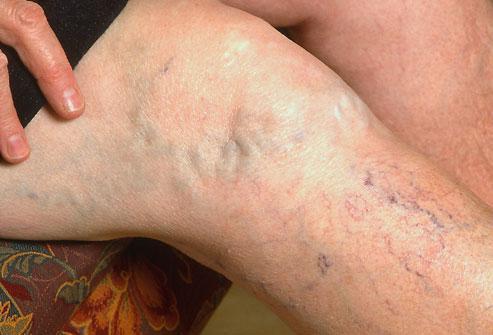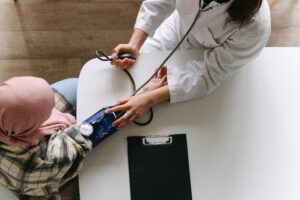Varicose veins are those unsightly, bulging veins that can develop in your legs. While these damaged veins don’t always pose a threat to your health, they can become painful over time and lead to more serious complications.
At HeartCare Associates of Connecticut, LLC, our vein specialists offer radiofrequency ablation techniques, including Venefit™ to treat painful veins and improve the appearance of your legs.
Why you have varicose veins
Veins are blood vessels that carry blood from all parts of your body back to your heart. The veins in your legs have to work much harder than most of your other blood vessels because they have to fight gravity to move blood upwards to your heart.
This battle against gravity can cause damage in your valves that lead to varicose veins. Your valves keep blood flowing in one direction. When these valves are damaged, blood can leak backwards and pool in your vein, causing the vessel to enlarge.
How radiofrequency ablation works
Radiofrequency ablation is a minimally invasive treatment that destroys the damaged vein using heat. Heat energy creates scar tissue inside the bulging vein, cutting off the flow of blood.
Blood reroutes to nearby healthy veins, and over time, the damaged vein collapses. Your body absorbs the collapsed vein naturally without the need for additional treatment.
Our team at HeartCare Associates of Connecticut, LLC, offers Venefit, a technology that uses heat energy to destroy your damaged vein.
What to expect during your ablation
During the procedure, you can receive a local anesthetic to keep you comfortable. Your provider places a slim catheter into your affected vein using the guidance of ultrasound technology. The radiofrequency energy moves through the catheter to destroy the vein.
In the days after your treatment, you undergo ultrasound imaging to ensure that the treated vein is fully closed. You also wear compression stockings and follow other vein care recommendations after treatment to optimize blood circulation and prevent additional varicose veins.
When to consider radiofrequency ablation for varicose veins
Many people seek treatment for varicose veins to improve the appearance of their legs. If the enlarged, rope-like veins in your legs are interfering with your self-confidence, consider scheduling a consultation with our vein specialists at HeartCare Associates of Connecticut, LLC.
You may also wish to treat varicose veins with radiofrequency ablation if your veins become uncomfortable or you experience:
- Pain
- Aching
- Itchiness
- Soreness
Your vein specialist may recommend radiofrequency ablation if you develop ulcers in your legs or blood clots due to venous insufficiency.
The benefits of radiofrequency ablation
Radiofrequency ablation offers many benefits over traditional varicose vein treatment. Other methods for destroying damaged veins involve injections of chemicals into your legs to collapse the bulging vein (sclerotherapy) or the removal of your damaged vein (phlebectomy).
You may be a candidate for radiofrequency ablation if these methods or VenaSeal™, a procedure to seal off the problem vein with a medical adhesive, aren’t options for you.
With radiofrequency ablation techniques, you can achieve optimal results without pain or extended downtime. In many cases, you can expect to get back to your usual routine the day after your treatment.
If you’re unhappy with the look of your legs because of bulging veins, find out if radiofrequency ablation is right for you by calling the HeartCare Associates of Connecticut, LLC, office nearest you or request a consultation through the online booking feature today.







